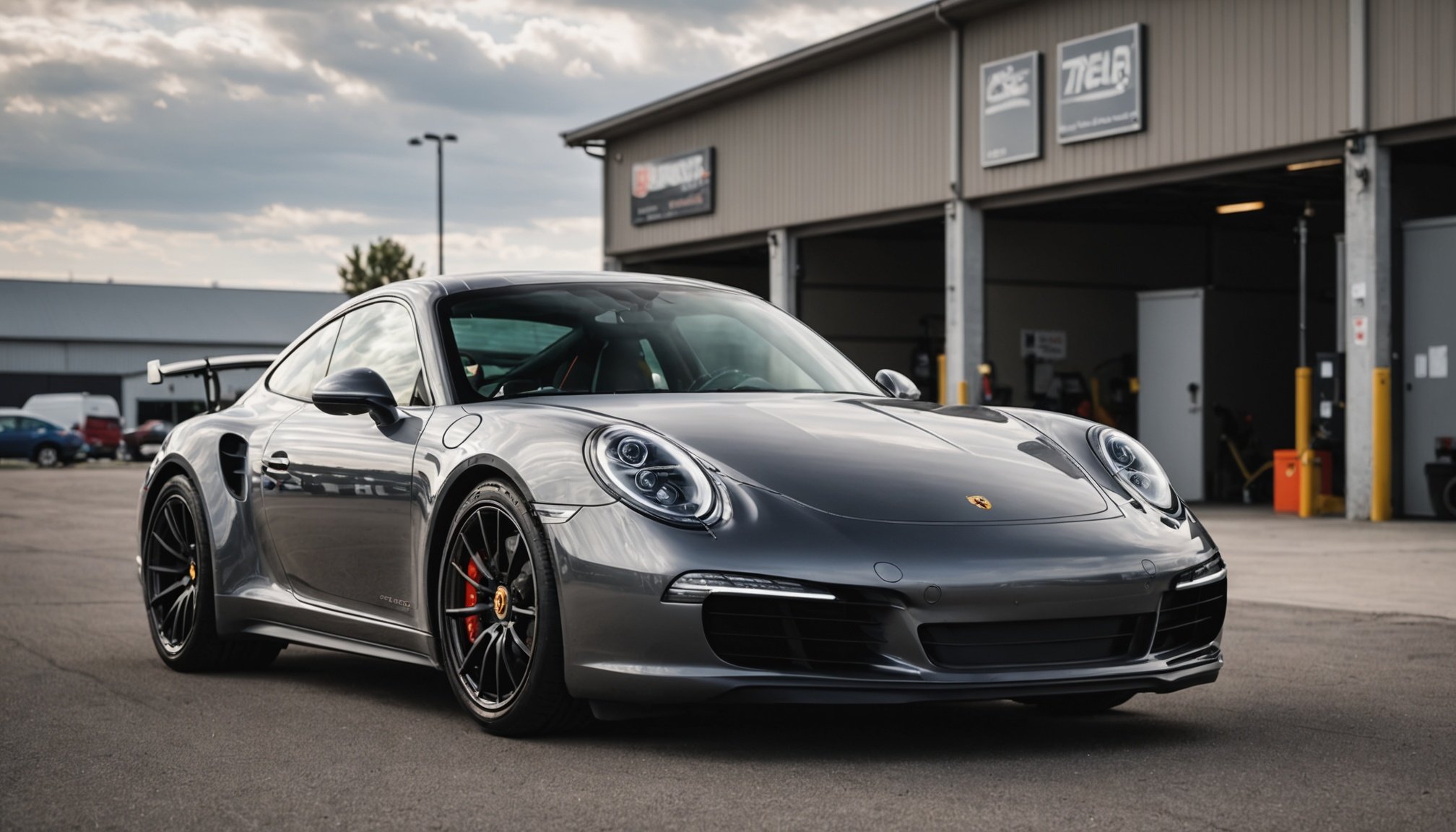Overview of Engine Oil for Porsche 911
The selection of engine oil is crucial for maintaining the performance and longevity of high-performance vehicles like the Porsche 911. The specific requirements for the Porsche 911 necessitate careful consideration of the oil types used. Using the appropriate engine oil not only enhances the car’s performance but also ensures its engine longevity.
Engine Oil and Performance
Engine oil acts as a lubricant, reducing friction between the moving parts of the engine. This lubrication is vital for the performance of the Porsche 911, as it allows for smoother operation and prevents wear and tear. The choice of oil directly influences fuel efficiency, throttle response, and the overall driving experience.
In the same genre : Unlock Ultimate Convenience: Step-by-Step Remote Start Installation Guide for Your Chevrolet Silverado
Longevity and Maintenance
Using the right engine oil is key to keeping the engine in excellent condition over time. It helps maintain the Porsche 911’s high-performance standards by providing the necessary protection against engine wear. Regular changes using high-quality oil are essential to avoid build-up of harmful deposits, which could compromise engine health.
Specific Requirements
Porsche 911 engines may require specific oil formulations that align with manufacturer recommendations. These specialized oils are designed to meet precise criteria that standard oils may not fulfill, ensuring that the vehicle operates optimally throughout its life.
Also to discover : Unleash Your BMW 335i’s Power: Essential Turbocharger Maintenance Tips for Peak Performance
Types of Engine Oils for Porsche 911
Choosing the right type of engine oil is critical for the proper functionality and performance of the Porsche 911. The needs of this high-performance vehicle demand careful selection between synthetic, conventional, and high-mileage oils based on their distinct properties.
Synthetic Oil vs. Conventional Oil
Synthetic oils are engineered to provide improved durability and lubrication, especially under extreme temperatures and conditions—ideal for enhancing the Porsche 911’s performance. They help maintain engine efficiency by offering better protection against deposits and sludge compared to conventional oils.
Conversely, conventional oils are suitable for regular driving conditions and can be a cost-effective choice for less demanding environments. However, they may not offer the same level of performance enhancement or longevity in engine protection as synthetic options, particularly in high-performance sports cars like the Porsche 911.
High-Mileage Oil Benefits
For aging Porsche 911 engines, high-mileage oils can be beneficial. These oils are formulated with additives that help rejuvenate seals and reduce oil consumption, preventing leaks and wear in engines with higher mileage. They are an excellent choice for extending the longevity of older vehicles while maintaining optimal operational standards.
Understanding Viscosity Ratings
Viscosity, a critical factor in engine performance, determines how easily oil flows at various temperatures. For the Porsche 911, selecting the right viscosity is pivotal to maintaining optimal engine conditions. The Society of Automotive Engineers (SAE) provides a system of ratings to classify oils based on their viscosity characteristics.
Oil Viscosity and Its Importance
Oil viscosity affects how well the oil can lubricate engine components under different thermal conditions. A low-viscosity oil flows more easily, reducing friction at lower temperatures. Conversely, a higher viscosity oil maintains its integrity at elevated temperatures, providing crucial protection under intense driving conditions.
SAE Ratings and Their Impact
SAE ratings, like 0W-40 or 5W-30, indicate the oil’s behavior in cold and hot environments. The number before the ‘W’ (winter) denotes cold temperature performance, while the number after reflects viscosity at high temperatures. Understanding these ratings helps Porsche 911 owners select oils that match their performance needs and environmental conditions.
Temperature Effects on Oil Viscosity
Temperature significantly impacts oil viscosity. In colder climates, oils with lower SAE ratings offer better engine startup protection. In contrast, high-powered drives or hot environments demand oils with higher viscosity to prevent thinning and to safeguard engine components from excessive wear. Ensuring the correct viscosity contributes to both engine protection and performance longevity.
Engine Oil Specifications for Porsche 911
Navigating the landscape of engine oil for your Porsche 911 involves understanding key specifications essential for maintaining performance standards. The significance of API standards cannot be overstated. These standards, set by the American Petroleum Institute, ensure your vehicle receives oils meeting rigorous quality and performance benchmarks. When selecting engine oil, look for API certification to ascertain optimal engine function.
Porsche approvals are another critical factor. Manufacturer endorsements signal that an oil product meets precise engine requirements unique to the Porsche 911. These approvals often denote the oil’s ability to withstand the demands of high-performance engines, providing assurance for car enthusiasts.
Key performance specifications help differentiate suitable oils. Emphasize viscosity ratings that align with your driving conditions, certifications like ACEA or API that ensure the oil’s chemical properties meet stringent criteria, and Porsche’s own recommendations for high-performance needs. This ensures the oil offers excellent lubrication, thermal stability, and resistance to oxidation. Adhering to these specifications optimizes the engine’s efficiency and longevity, providing peace of mind and consistent performance.
Recommended Engine Oils for Porsche 911
The Porsche 911 demands top-quality engine oils that can withstand its high-performance standards. When considering top engine oils, synthetic options often lead the market due to their enhanced protective properties and ability to deliver unparalleled lubrication. Brands like Mobil 1, Castrol EDGE, and Shell Helix Ultra frequently appear in product reviews as Porsche-approved products, providing reliable performance across various driving conditions.
Best Synthetic Oils on the Market
Synthetic oils like Mobil 1 and Castrol EDGE excel with advanced formulae designed for Porsche engines. They offer superior resistance to breakdown and thermal degradation, critical for maintaining high engine longevity.
Comparison of Popular Engine Oils
When comparing popular engine oils, focus on their viscosity ratings and additive packages. Mobil 1, for example, often provides a balance of performance and protection, while Castrol EDGE is frequently noted for its engine longevity benefits in performance settings.
User Reviews and Expert Opinions
User reviews consistently highlight synthetic oils’ ability to enhance performance and prolong engine life. Experts often recommend these oils for their proven engine protection capabilities, ensuring the Porsche 911 runs smoothly over extended periods. Investing in approved quality oils pays dividends in sustained engine performance.
Maintenance Tips for Prolonging Engine Life
Taking steps to maintain optimal engine performance is essential for Porsche 911 owners. Adhering to proper engine maintenance routines and understanding the significance of oil care are crucial for extending the engine’s lifespan.
Oil Change Intervals and Quality Checks
To ensure the performance and longevity of your Porsche 911 engine, observe recommended oil change intervals. For most Porsche models, performing an oil change every 10,000 miles or annually—whichever comes first—safeguards against unnecessary wear. Routine checks on oil quality are equally important, as degraded oil can compromise engine health. Look for signs of contamination or unusual thickness, which indicate it’s time for fresh oil.
Performance Tips Through Oil Care
Consistent oil monitoring plays an integral role in maximizing the Porsche 911’s capabilities. High-quality oils with excellent viscosity and pertinent SAE ratings support efficient engine lubrication and thermal management. When considering engine oil types, opt for high-performance synthetic oils that cater to your driving habits and environment.
Additionally, conduct regular maintenance checks to identify potential oil leaks or sludge buildup. These proactive measures help maintain engine protection, ensuring your Porsche 911 operates at peak performance. Prioritising these maintenance tips lends confidence in your vehicle’s reliability and overall driving experience.
Impact of Oil Quality on Performance and Longevity
Oil quality plays a pivotal role in ensuring both the performance enhancement and longevity of the Porsche 911’s engine. High-quality oil not only lubricates but also protects engine components by minimizing wear. This protection is crucial for high-performance vehicles, where every component is pushed to its limits.
Investing in superior oils leads to noticeable improvements in fuel economy and power delivery. These oils are specifically formulated to withstand extreme temperatures, maintaining consistent engine performance. Thus, they ensure that the Porsche 911 operates efficiently under various driving conditions.
Poor oil quality can lead to engine diagnostic issues, as inferior oils may result in the accumulation of deposits, sludge, or even corrosion within the engine. Such issues could significantly impair the car’s overall performance and might necessitate costly repairs or maintenance. This highlights the critical need for selecting oils with proven engine protection capabilities.
The long-term benefits of choosing high-quality oils surpass the initial investment. Quality oils prolong engine life, reduce the frequency of oil changes, and ultimately contribute to a more reliable and robust driving experience. For Porsche 911 owners, this means a more enjoyable and worry-free ownership.

